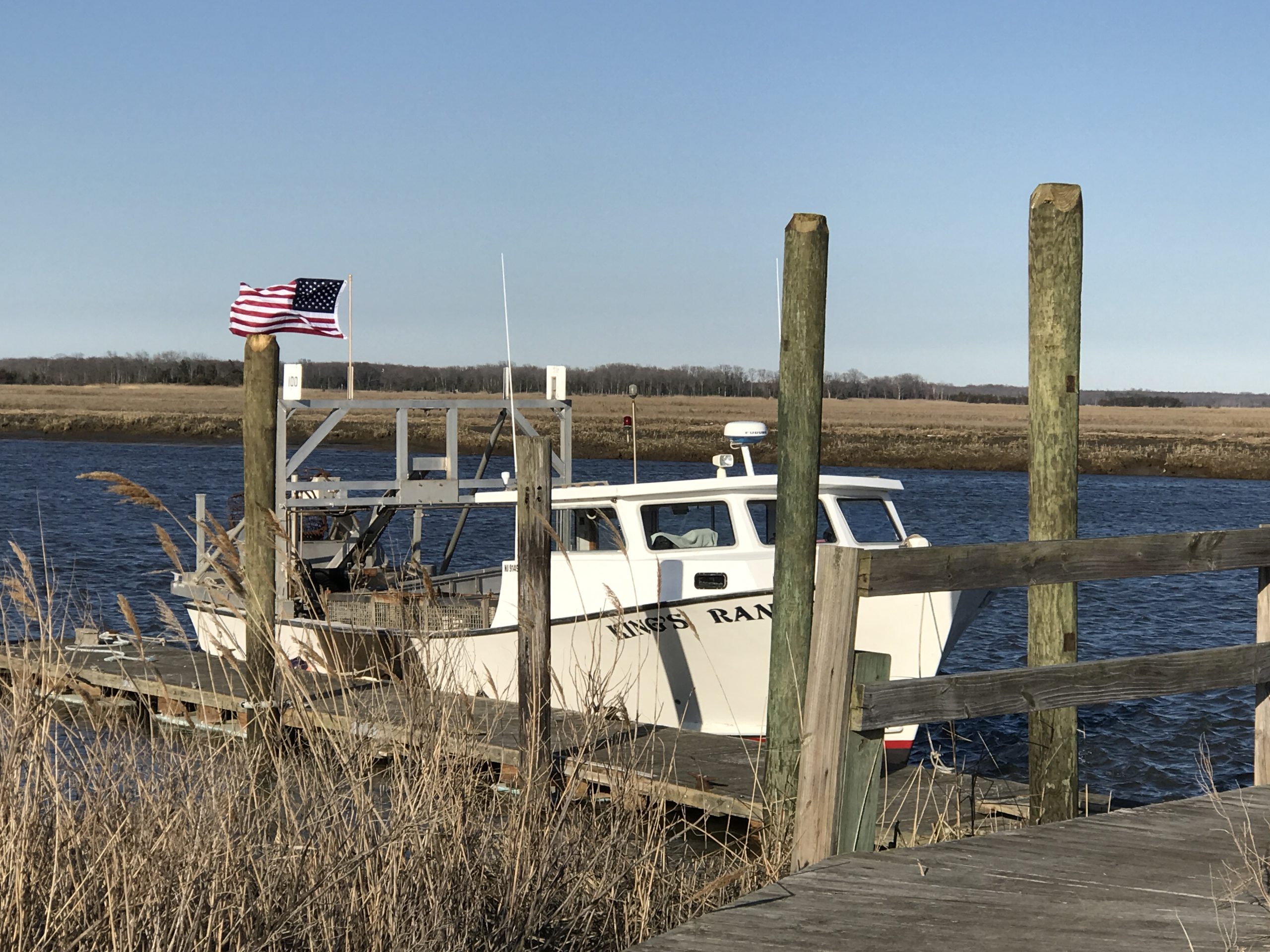Investment in income-generating property has long been a cornerstone of wealth-building strategies, with traditional rental real estate holding a prominent place. However, niche assets like rental boat docks are gaining traction among investors seeking diversification, clean energy exposure, and stronger income. I started my investment career in residential real estate and moved to commercial waterfront investment when the residential market appeared to be overpriced. I am now working on raising funding for two residential real estate and dock projects in New Jersey and Delaware. This essay compares the benefits of investing in residential rental real estate and rental boat docks, evaluating return on investment, ease of management, regulatory considerations, risk exposure and other factors.
Contents
- 1
- 2 1. Return on Investment
- 3 2. Ease of Management
- 4 3. Regulatory Environment and Legal Complexity
- 5 4. Market Demand and Liquidity
- 6 5. Insurance and Risk Management
- 7 6. Legal Structure
- 8 7. Tax Treatment
- 9 8. Financing
- 10 9. Alignment With Investment Strategy
- 11 10. Personal Use and Benefit
- 12
- 13 Summary
1. Return on Investment
Residential Rental Real Estate:
Residential real estate generates investment returns through three sources: 1) rental income, 2) property appreciation, and 3) tax benefits. According to the National Council of Real Estate Investment Fiduciaries, the average annual returns for residential property investments in the U.S. have hovered around 8–10% over the long term. Appreciation in high-growth urban or suburban areas can significantly enhance total returns, and tax advantages like depreciation deductions and IRS 1031 exchanges further boost investor yield.
Rental Boat Docks:
Boat docks in affluent waterfront communities offer competitive cash yields. In some Florida communities, private dock slips rent for $500–$2,000 per month depending on location and amenities. Local prices are much lower. Investment boat docks are often cash purchases with minimal upkeep. The rate of return on investment is higher than on residential real estate. According to Waterway Wealth Report 2023 by Marina Investment Advisory Group, boat dock investors in premium marina locations can see annual returns between 8% and 15%.
After years of working in the Atlantic City to Cape May region, my plan was to avoid the high-end waterfront communities and work at lower cost rural commercial docks in our fishing and aquaculture ports. I found that there is less competition for commercial boaters and, to my surprise, other unexpected user groups showed interest to boost demand.
2. Ease of Management
Rental Real Estate
Managing residential rentals can be time-intensive and complex. I spent many weekends handling tenant issues, offering lease agreements, repairs, evictions, and local housing compliance. While property management companies alleviate the burden, they charge 8–12% of gross rent plus expenses, reducing net returns. The inability to adapt a small business management mindset may hurt investment returns, in my experience.
Rental Boat Docks:
Boat docks generally require far less management. There are no tenants living on-site, limited wear and tear, and fewer legal complexities. In many cases, docks are leased seasonally or annually, requiring only basic maintenance and periodic inspections for dock safety, pilings, and utility connections. For dock investors partnering with an on-site managing investor, or using marina associations or dockominium structures, the administrative load may be further reduced.
3. Regulatory Environment and Legal Complexity
Rental Real Estate:
Real estate is subject to extensive regulation at the federal, state, and municipal levels. Landlord-tenant laws, fair housing rules, zoning laws, and eviction procedures vary significantly by jurisdiction. Noncompliance can result in fines or legal liability.
Rental Boat Docks:
Boat docks in our region are regulated by state marine and coastal management agencies. Permitting is required for dock construction or significant modifications—often under state-level coastal zone management programs. This process is an up-front cost that requires professional expertise. Once installed, leasing docks tends to involve fewer legal complexities than leasing dwellings, though environmental compliance must be considered.
4. Market Demand and Liquidity
Rental Real Estate:
Demand for residential rental property remains high, especially in urban centers and areas with limited housing supply. However, the market is cyclical, and downturns—such as the 2008 housing crisis—can impact property values and tenant reliability. Real estate is relatively illiquid, with transaction timelines averaging 30–90 days.
Rental Boat Docks:
Dock demand correlates with boating activity, which has grown significantly—boat sales surged by over 35% in 2020–2022, according to the National Marine Manufacturers Association. Limited dock availability, particularly in regulated coastal zones, strengthens long-term demand. The resale markets for boat docks are less liquid and more localized, with property values sensitive to water rights, storm exposure, and marine insurance costs. Our local marine market demand dropped off during the Covid era but is growing strongly now.
5. Insurance and Risk Management
Rental Real Estate:
Property insurance for rentals covers structural damage, liability, and loss of income. Premiums can be high in disaster-prone areas. Additionally, landlords face eviction risk, nonpayment, and tenant-related damage.
Rental Boat Docks:
Insurance costs for docks are high, and policies may limit coverage for some liabilities and environmental hazards. Risks include weather damage, erosion, and vessel-related incidents, but overall exposure is more limited and manageable. I find that alternate risk management strategies are more valuable than insurance.
6. Legal Structure
Rental Real Estate:
Property insurance for rentals covers structural damage, liability, and loss of income. Premiums can be high in disaster-prone areas. Additionally, landlords face eviction risk, nonpayment, and tenant-related damage.
Rental Boat Docks:
The same structures are available for rental docks. I find that private commercial mortgages are best for debt financing and limited partnerships (with or without LLC structure) are best for tax benefits.
7. Tax Treatment
Rental Real Estate:
Rental real estate is typically depreciated over a long period of time. Investors rely on temporary tax laws and other strategies to accelerate the cost recovery through depreciation expense.
Rental Boat Docks:
Docks are depreciated in a shorter time. Rental dock businesses are commonly categorized as active businesses, rather than passive rental income, to quality for additional tax benefits. I find that tax laws favoring small business stock sales are best for avoiding taxes on rental dock businesses over the long term. The difficulty and work in arranging an IRC 1201 small business stock sale are similar to the benefits of IRC 1031 tax-free exchange, but the tax benefits are better.
8. Financing
Rental Real Estate:
Rental real estate is primarily financed through mortgages. A portion of the purchase is made in cash and the rest is typically financed. The mortgage market is large and robust.
Rental Boat Docks:
Docks are usually financed with cash. The total cash investment for the entire dock investment is similar to the cash downpayment for a residential investment. Some investors rely on home equity loans on property disconnected with the docks. Some lenders are expanding financing for docks, but we do not yet have a proven track record to offer an endorsement for any specific financier.
9. Alignment With Investment Strategy
Rental Real Estate:
The increased market demand stemming from the shortage of rental property adds incentive to residential real estate investing. But this factor increases overall market prices so investors must assess whether specific current market prices represent an attractive entry point. Investors like myself who are accustomed to a ‘buy low, sell high’ strategic mindset may find it increasingly difficult to buy at a sufficiently low price despite the alignment with investment strategy.
Rental Boat Docks:
The boating industry is expected to convert sooner and more rapidly to renewable energy for a variety of reasons, including the desire to avoid environmental liabilities. Investors who support green energy investments as a core principle of their investment strategy are increasingly attracted to investment in boating facilities that share these goals.
10. Personal Use and Benefit
Rental Real Estate:
Popular first-time rental real estate investments are duplexes with owners in one unit, or Accessory Dwelling Units. Beyond that, the overlap between owner and tenant use is minimal.
Rental Boat Docks:
Boat dock owners commonly use one or more boat slips for themselves for recreational purposes, and sometimes even operate a separate business commercial use. At my current location, the strongest demand for docks comes from seafood businesses, charter boat operators, and commercial harvesters that like to control their own docks rather than rely on rentals.
Summary
Both rental real estate and rental boat docks offer viable investment opportunities with distinct advantages. Traditional real estate is well proven to provide stable, long-term appreciation and access to well-established financial instruments. In contrast, boat docks offer high yields with lower entry cost, lower management complexity, and an appealing niche in waterfront communities. Investors seeking diversification, lower operating costs, and reduced management requirements. may find rental boat docks to be an attractive complement or alternative to residential rental properties.

